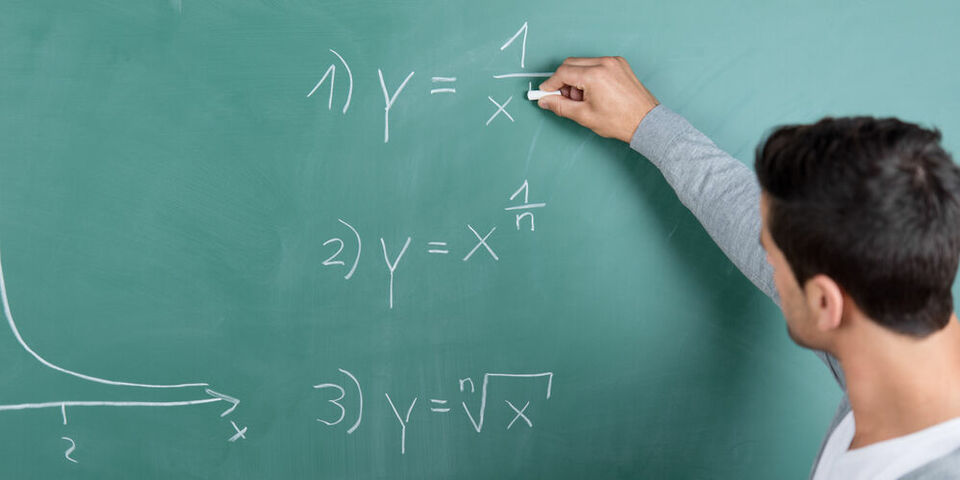Increase in science and engineering students doesn’t lead to more teachers in exact sciences
A quarter of science and engineering students would not mind being a teacher. And this by no means applies to the weaker students alone. So, where do things go wrong? Because the vast majority of graduates eventually opt for a different career. However, the Eindhoven School of Education (ESoE), which offers teacher-training programs in Computer Science, Physics, Mathematics, Chemistry and NLT (Nature, Life and Technology), did see a significant increase in the enrollment numbers for one of these five Master’s programs, from 36 to 49 students, in the academic year 2018-2019.
The number of science and engineering students in the Netherlands is steadily increasing and has doubled during the past ten years - at TU/e as well. But the number of students enrolled in first level teacher-training programs remained stable. And that’s a shame, because there is a shortage of teachers in exact sciences.
Professor Ton van Leeuwen, director of ESoE, did however see a sudden increase last academic year in enrollment numbers: from approximately 35 in recent years, to 49 in the academic year 2018-2019. Van Leeuwen: “At this point I can’t say whether that number continued to rise or inclined somewhat this year. We don’t have the exact numbers yet, because an academic year has two intake moments.” What Van Leeuwen does know, is that from a national perspective, Eindhoven’s performance is by no means poor.
Intellectual challenge
The universities of Delft, Leiden and Groningen decided to investigate why the strong increase in the number of science and engineering students hasn’t led to a similar increase at the teacher-training programs in exact sciences. The outcomes of their research are interesting, if only because quite a number of students, twenty five percent of Bachelor’s students, are interested in a teaching career.
This group of prospective teachers can be broken down into two categories, the researchers write. One category has, in the words of the rapporteurs, ‘a high social interest.’ This means that they enjoy interacting with people, which is why they have their eye on a teaching career. The other category is mostly looking for an ‘intellectual challenge’ in the teaching profession.
According to the researchers, ‘this latter subcategory consists of students with excellent study results. This seems to belie the assumption that only lower performing students are interested in teacher-training programs.'
Double certificate
It seems that the scientists at the science and engineering departments labor under this misapprehension. They have nothing against a teaching career, but they aren’t particularly enthusiastic about it either.
Van Leeuwen says he recognizes this persistent impression, and explains what he did to tackle the problem at his former department of Applied Physics. “We started with a double certificate at Applied Physics, which means that students follow both a ‘regular’ Master’s program and one that leads to a teaching qualification. That works extremely well, and these students usually complete the Master’s phase quicker than the students who follow only the regular Master’s program. This is because the better students are the ones who opt for the possibility of a double certificate. At ESoE, we’re trying to promote this approach among students at other departments as well.”
Minor Education
But in the end, only a very small number of science and engineering students decide to go into teaching. In fact, there is little enthusiasm for a teaching career even among students who completed a Minor Education, which qualifies them to teach in the first three years of HAVO and VWO. At TU/e, approximately sixty students opt for such a minor each year.
According to the researchers, the minor is too extensive for students to discover that becoming a teacher might actually be quite fun. The researchers say that the minor is a serious part of the study program, instead of a simple look behind the scenes. On the other hand, an improvement of the minor might also help, the researchers suggest: ‘Disappointments (for instance as a result of discipline issues) can be prevented by good internship supervision,’ the report says, ‘and it is advisable that these students gain positive experiences when teaching the last three years of secondary school, and with personal supervision of high school students.’
Internationals
Van Leeuwen says that he’s also working on an honors program at TU/e in the field of teaching, which may improve the status of the teaching profession. “We do this in collaboration with Radboud University Nijmegen, where they already have these kinds of programs,” Van Leeuwen says.
And, finally, see whether international students are interested in a job as a teacher. Because more and more foreign students come to the Netherlands, and the number of bilingual schools is increasing as well. As science and engineering students would say: 1+1=2. No international student, incidentally, has enrolled at ESoE as of yet, because the teacher-training programs at TU/e are still Dutch-taught.


Discussion